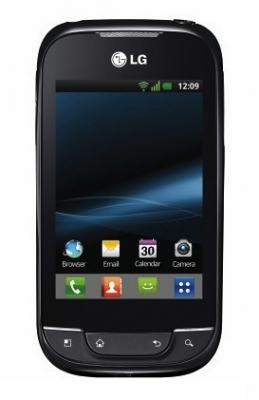LG Announces First Smartphone with NFC Option

LG Electronics has announced its first NFC-enabled smartphone with the Optimus Net, which supports Google’s Android mobile operating system.
The Optimus Net, a lower-end smartphone that features support for social networking applications, will be available with NFC only in Europe, however, and only on some of the phones, “depending on the carrier.”
This strongly implies that LG is not making NFC a default feature in the model and will only provide it with an NFC chip inside if mobile operators order it that way.
LG, in its announcement Friday, also said the NFC version of the phone will be capable of mobile payments, which means it will support at least one secure element. This indicates that the NFC version of the phone is almost certain to support the single-wire protocol standard and applications on SIM cards, which is a must-have by most telcos in Europe planning to roll out NFC. It's possible the phone also could come with an embedded secure element.
The South Korea-based phone maker announced the handset along with a sister Android phone, the Optimus Pro, which will not support NFC. Both support Google’s latest Android operating system, Gingerbread, and feature relatively low processing power and small screens. They are part of LG’s Optimus series.
LG is clearly targeting the Optimus Net, also known as the LG-P690, at younger consumers. Besides a low expected price tag, the phone will feature LG Social+, which will put access to social-networking applications in a convenient widget on the home screen, according to LG. That will allow users, for example, to update their status on Facebook and Twitter while reading their friends’ social media feeds on the same screen, said LG. The phone will be available in North America and Asia, too, but not with NFC, according to LG’s announcement.
The release of the Android NFC phone from LG is not a surprise. As NFC Times earlier reported, LG has been working on one or more Android models for this year, along with at least one NFC-enabled 2G feature phone, the low-cost T530 touch-screen handset. The latter phone, which runs Java software, is expected out this month or next.
While not a headline handset for European mobile operators planning to introduce NFC, the Optimus Net would add a low-cost Android device to help them fill out their lineups of NFC phones and to make sure NFC is within reach of younger subscribers.












